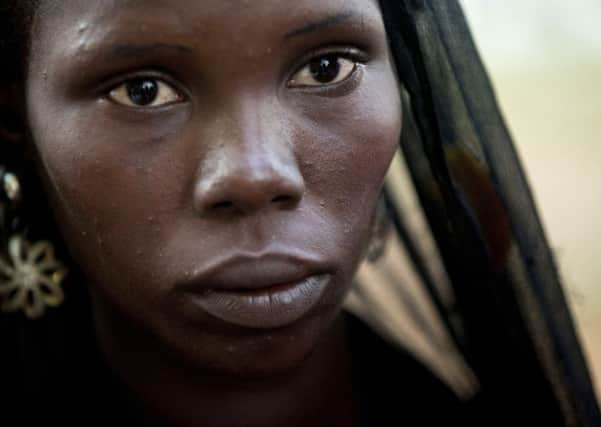Nightmare goes on for Boko Haram '˜wives'


Few groups are as stigmatised as those abducted, raped, forcibly married or otherwise mistreated by the terrorists – and who are often called “Boko Haram wives”.
“No-one helped me, just one person who got me these clothes,” said Maria Saidu, a 32-year-old woman who was held by Boko Haram for more than a year before escaping three months ago.
Advertisement
Hide AdAdvertisement
Hide AdAfter a week-long tour of the Boko Haram-affected countries of West Africa, Samantha Power, America’s UN envoy, highlighted efforts to assist the victims of Boko Haram.
In the eastern Nigerian city of Yola, where displaced people far outnumber native residents, she met a few of the Chibok schoolgirls who escaped after their mass kidnapping two years ago. A further 219 remain in captivity.
Some of the escaped Chibok girls are now receiving free education at the American University of Nigeria. They speak of becoming doctors or chemical engineers or starting other careers.
Few who were once in their shoes have been so lucky.
“There is nothing we can hold onto,” said Monica, a 22-year-old from northern Nigeria, whose month-long captivity ended in a long flight through Cameroon on to Abuja, leaving a dead child in the bush along the way. “We are alive but not living.”
As with others interviewed for this story, Monica knew of other women who had been raped, some by 15 different men each day. But like everyone else, she told a story of good fortune or an opportune escape or rescue that allowed her to avoid a similar fate. She didn’t want to give her full name.
Monica has no job, but she has reunited with her husband and has a baby due in September.
At a dusty displacement camp outside Yola, 51-year-old Fatima Hassan recounted her sufferings over four months in 2014 when she ate and drank little while being forced to cook for Boko Haram’s fighters. She now cooks for refugees.
By Hassan’s understanding, Boko Haram doesn’t rape. “If they see a lady they like, they just force her to marry,” she said, explaining that she was too old for any of the fighters.
Advertisement
Hide AdAdvertisement
Hide AdFears of violence are pervasive after two kidnapped girls blew themselves up at a refugee camp last year, killing 60 people. A third girl with explosives strapped to her body backed out at the last minute after spotting her mother at the settlement.
“Suddenly people who have been with terrorists are back in the neighbourhood,” said Obiageli Ezekwesili, a former Nigerian minister who leads the Bring Back Our Girls campaign.
“You can’t simply kiss the person and hold them. There has got to be mechanisms that deal with the criminal intents and actions, and then there are mechanisms that deal with the redemptive aspect.”
But for the victims, he said, much more assistance is needed. Those who’ve suffered sexual violence are a particular problem “because of the stigma and the sense that it would be hopeless to go forward and be known as a rape victim”.